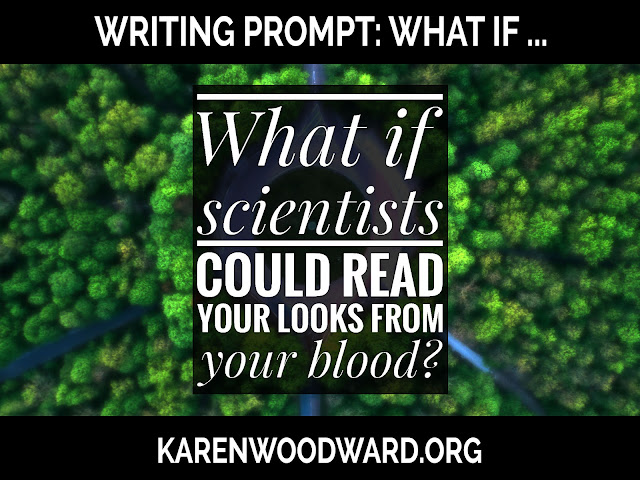Today I want to talk about flash fiction and why I think writers, especially beginning writers, should think about writing more of it. But first ...
Flash fiction: What the heck is it?
A work of flash fiction is "a work of extreme brevity." (
Flash Fiction, Wikipedia). Although there is no generally accepted definition for what that means in terms of word count, "flash fiction" is often used to indicate a work that is less than 1,000 words in length.[1]
One of the shortest stories I've ever read--and (arguably) one of the shortest stories it is possible to write, since it contains only six words--is Ernest Hemingway's:
"For Sale, Baby Shoes: Never Worn."
-- Ernest Hemingway
But it can seem odd to call both a 1,000 word story and a 6 word story by the same name. After all, one is a full-blown story while the other could be a tweet. Because of this some folks have begun to call extremely short works of fiction--works of, say, 300 words or fewer--micro-fiction.
Whatever name you would like to use, the kind of stories I'm talking about in this article are, as the dictionary definition has it, works of extreme brevity. To me that means works of less than (give or take) 1,000 words.
The Top Five Reasons To Write Flash Fiction
1. Flash fiction is quick--both to write and to read.
The more you practise writing--and reading!--the better you'll become. Flash fiction is a quick read, by reading flash fiction you can accelerate the learning curve.
I'm not talking about passively reading, sitting back and reading for pleasure--though there's certainly nothing wrong with that! In fact, I think it's a must. But writers need to actively read complete stories.
Also, writers need to read to discover (a) what the author was trying to achieve (reader identification, building suspense, etc.) and (b) how they did it.
Or didn't. I think it's just as valuable to recognize an author was attempting to create a certain effect and that it didn't happen. We've all had this experience, we're reading along, happy as a clam, and then the text falls flat and we're thrown out of the story.
If we're a writer we don't just get angry and throw the book against the wall (though we may be tempted), instead we ask ourselves: What effect was the writer going for and why didn't he/she pull it off? Even more importantly, we ask: How could I re-write this snippet so that the effect does happen?
2. The more stories you finish writing, the better you'll become.
It's not enough to write a lot and read a lot. As
Neil Gaiman says, it's just as important to finish what one starts. After all, I could write, "All work and no play makes Jack a dull boy," every single day for the rest of my life and I can guarantee you it wouldn't improve me as a writer!
It is much easier to finish a 900 word piece of flash fiction--I can do that in about two hours--than it is to finish an 80,000 word novel.
3. Writing--and reading--flash fiction gives you confidence.
Reading the flash fiction of peer writers--people who have reached the same stage of this crazy journey you have--can help you because it can help you see your work in a new way.
Let me explain. When you read the work of peer authors you're bound to come across beautifully written stories. Yes, sure, this can be demoralizing if you think your stories have all the appeal of a white room, but you'll also see that these same authors don't always get it right. They'll stumble and when they do you'll see it. That is, you'll see where their prose went flat or their story turned left when it should have gone right and then something amazing and wonderful will happen to you: you'll be able to see these things in your own work.
Or, maybe not. Maybe you're different from me. For myself, when I read a story I've written it's impossible to get past the story in my head. When I read a line I know what the line is supposed to say because I've got the story dancing around my brain. Unfortunately often the line doesn't say what I want it to and I can't see that because I'm too close to the story, I'm too connected.
When I read another persons work and I see the flaw in their work often something will click, a mental connection will be made, and I'll suddenly realize that's what I've done too. But, often, I'll need to see this mistake in another person's work, first, before I'll see it in my own.
4. Writing flash fiction can give you an audience.
When we start out we write stories that we look back on in later years and quietly, reverently--even tearfully--inter in trunks and (if you're me) in shoeboxes under the bed. But those stories were important, they needed to be written. If they hadn't been written we'd never have gotten better. We'd never have improved.
It helps (especially when one first starts out) to share our writing--even if it is far from perfect--with others.
Why? Because ...
First, every writer needs encouragement, especially in the beginning.
Second, beginning writers need encouragement that doesn't come from their mother! Mother's have to love everything you've written, it comes with the job description.
5. Writing flash fiction makes it easier to make connections with other writers.
Readers love flash fiction. Yes, sure, there are probably exceptions, people who want to focus exclusively on longform fiction, but in general readers would prefer to critique a 1,000 word piece of fiction rather than a 100,000 word piece because ... well, because the most important thing a writer can do--and the thing they must do--is write. Time is precious and while it is important to critique the work of others the single most important thing a writer can do is write.
Joining A Writing Community
A terrific way to motivate yourself to write is by joining a community that helps motivate its members to not only write regularly, but to publicly share what they've written.
Saturday Scenes on Google+ (#SaturdayScenes)
I'm a member of one such community:
SaturdayScenes. Saturday Scenes was created by
+John Ward with the intention of giving writers a friendly nudge to write more, to publish what they've written, and to read and comment on the work of others.
Each saturday participating writers publish a scene (generally each scene is no more than 500 or 1,000 words) on their Google+ profile and then share a link to that post with the community.
Saturday Scenes is only a few weeks old, but already a vibrant community has formed, one held together by the shared experience of publishing work and having it read, and commented upon, by others.
For the last few Saturdays I've been sharing scenes from one of my "under the bed" stories, one that I've gone back to and fixed up. It's also a good way to share scenes that you love but which you've had to cut from a novel.
Critters.org
Another terrific organization I've belonged to for a number of years is
Critters, run by Andrew Burt (Aburt). If you join you'll need to commit to doing a critique a week, but in return you are pretty much guaranteed to get several thoughtful critiques of your own work.
Note: Critters.org focuses on short stories over 2,000 words long. You can submit flash fiction pieces but they aren't worth as much
reading credit.
That's it! Have you written any flash fiction? If so, tell us about it. Did you enjoy writing it? What about reading the flash fiction of others?
Notes
1. I say this based solely on my experiences, how I've seen the word used. In putting up these descriptions I don't mean to imply that this is what the words mean, full stop, but only to make it clear how I am using these words.
Photo credit: "
the tide comes in - wet feet" by
*Light Painting* under
Creative Commons Attribution 2.0.








